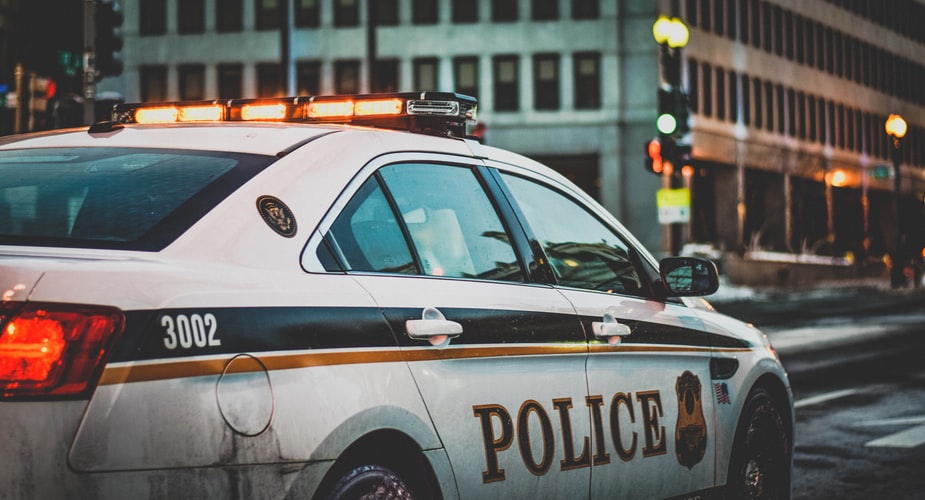Drunk driving, or driving under the influence is a national issue that affects millions of lives every day. In Oklahoma alone, 1.8% of adults report that that they have driven after having “too much” within the past month alone. From 2003 to 2012, roughly 2,205 people were killed in crashes that involving a drunk driver in the state of Oklahoma, placing it among the higher ranked states for amount of fatal crashes involving alcohol. Here are some sobering facts about the reality of drunk driving in Kentucky and the rest of the nation:
- About in 1 in 3 traffic deaths in the United States involves a drunk driver.
- Men die in alcohol related traffic accidents at a rate nearly 5 times that of females.
- The most common age group involved in fatal drunk driving accidents are 21-34 year old’s.
- The annual death rate from drunk driving in Oklahoma is nearly double the national average.
- Although drunk driving fatalities have decreased by 20% throughout the country over the last 20 years, Oklahoma is one of seven stats that has actually increased its number of drunk driving deaths.
Oklahoma residents are already well aware that drunk driving is a problem in their own state and across the nation. Drivers getting behind the wheel while intoxicated poses a threat to everyone sharing the road, but a preventable threat that can be solved in part through the enforcement of law and order.
Is Rehab Required After a DUI in Oklahoma?
When considering whether rehab is necessary following a DUI in Oklahoma, the offender must be evaluated by the severity of the offense. According to Oklahoma DUI laws, individuals are intoxicated when their Blood Alcohol Content is at least 0.08%. Anything registered below that while operating a motor vehicle in Oklahoma is considered a DWI. Depending on the circumstances, offenders could face fines, jail time, court ordered treatment, and license suspension or revocation. For licensed drivers in Oklahoma over the age of 21, the following rules apply:
- A BAC between 0.001 and 0.05 is not considered intoxicated
- A BAC between 0.05 and 0.079 is impaired
- A BAC of 0.08 or above is considered intoxicated
How DUI’s and Court Ordered Rehab Work in Oklahoma
A DUI charge can happen anytime a driver tests for a BAC or Blood Alcohol Content over 0.08%. These charges may arrive in the form of a fine, loss of license, loss of automobile, jail time, and possibly even court-ordered addiction treatment. For those who are given court-ordered treatment in part because of a drunk driving charge, there are several things to understand. Each state administers punishment and treatment differently, but here some general operational procedures for how DUI’s are handled in the state of Oklahoma.
Tests
A DUI test is usually conducted when a driver is stopped on suspicion of driving under the influence. Individuals can only be stopped when officers have reasonable suspicion that a driver is operating under the influence, and the only way to confirm is by conducting one of these tests. Common DUI tests ask individuals to demonstrate some kind of fine motor control, including but not limited to:
- Walking in a straight line
- Balancing on one leg
- Reciting the alphabet backwards
- Following a beam of light back and forth
- A breathalyzer
While taking a field sobriety test is not legally required, refusal to do comprises adequate reasonable cause for them to be able to detain you and take you to either a police station or local hospital for DUI testing. If the driver still does not agree to take a test, then according to federal constitutional law they have the right to speak with an attorney before any further communication is undergone.
1st Offense in Oklahoma
In Oklahoma, getting charged with a DUI for the first time (0.08 or higher) will result in jail time between 10 days and 1 year as well as a fine of up to $1,000. Your driver’s license will also be revoked for up to 180 days.
2nd Offense in Oklahoma
In Oklahoma, getting charged with a DUI for the second time (0.08 or higher) will result in jail time between 1 and 5 years as well as a fine of up to $2,500. Your driver’s license will also be revoked for up to 1 year and you will be required to use an ignition interlock device for anywhere from 6 months to 3 years after you get your license back.
3rd Offense in Oklahoma
In Oklahoma, getting charged with a DUI for the third time (0.08 or higher) will result in jail time between 1 and 10 years as well as a fine of up to $5,000. Your driver’s license will also be revoked for up to 3 years and you will be required to use an ignition interlock device for up to 3 years after you get your license back.
What Will Happen After My Arrest?
If you are arrested on suspicion of drunk driving you will be apprehended and taken to the nearest police station for fingerprinting and mugshot. Depending on your level of intoxication, you will be held in jail for at least a night and given a ticket/summons that gives a court date. After appearing in court, you will lose your license for at least 1 – 3 months. If this is your second or third offense, that time will be even longer. You will also be fined for your offense and given additional penalties if this is not your first DUI charge.
Even if you are not sentenced to jail time, you will likely be given a probation sentence determined by the sentencing judge. If you fail to meet the requirements of this period, you can face additional fines and jail time. In most states, Oklahoma included, you will need to an alcohol and drug education program or even enter an addiction treatment center before you can get your license back. In classes you will learn about drunk driving prevention and educated about the dangers of drinking. These classes will have to be paid for out of pocket.
A counselor may also be assigned to you in order to evaluate your pattern of alcohol consumption. This individual will help the courts to know whether you have an alcohol abuse disorder. If you are deemed eligible, you will have to undergo court-ordered treatment before you can get your driving privileges back. In addition, you will have to get a special insurance policy that can double or triple your premiums. In Oklahoma, your second DUI offense will result in an ignition interlock device being placed on your personal vehicle for up to 3 years.
Court-Ordered Treatment
According to the National Institute of Justice, there are more than 3,000 drug courts within the United States. These entities help manage and sentence drug offenders to complete court-ordered treatment, work with specialized caseworkers, and undergo randomized and regular drug testing. Court ordered rehab offers individuals an alternative form of sentencing for any kind of drug-related crime, meaning instead of serving prison time they may be able to get the help they need to turn their life around.
The level of treatment will depend on the drug court and the judge who carries out the sentencing, but it will generally fall into several similar categories. For example, in extreme cases, offenders may be required to go to detox and residential treatment for an extended period. In other cases, offenders may be required to attend an intensive outpatient program in order to avoid jail time.
Detoxification
Generally the first step in the rehab process is going through detox. Detoxification deals with the physical aspect of addiction, helping to get through the initial physical signs of alcoholism to get over the withdrawal symptoms that most people suffering from alcohol abuse will go through. While the issue is not just a physical one, before any mental or psychological treatment can begin, the physical process needs to be taken care of so that the patient is not dealing with both withdrawal and counseling at the same time.
Alcohol detoxification can take up to five days and sometimes even a week while the patient experiences the withdrawal symptoms related to their degree of alcohol dependency. Some of these alcohol withdrawal symptoms may include:
- Anxiety
- Tremors
- Nausea
- Weakness
- Confusion
During this time, patients are told to relax while their body undergoes the difficult side effects of withdrawal. A detox team of professionals will monitor the patient’s body functions to ensure their safety during the process.
Alcohol detox is not a simple process and should only be done with professional supervision or under strict guidelines and instructions from a professional.
Inpatient Care
Following the detox, patients will move on to an inpatient, or residential, recovery plan that is personalized for their situation. Depending on the care facility a patient will stay at the facility for 30 to 90 days, although it is sometimes longer.
Similarly, treatment depends on the rehab treatment center you attend. Inpatient care is generally characterized by therapy and group counseling to help individuals struggling from substance use disorders continue their recovery process in a social setting, helping them get prepared for life following inpatient care. Many rehab clinics offer alternative forms of therapy including massage therapies, neurofeedback therapy, yoga and other options. You will be helped by a number of licensed care providers during this time who are trained to help you through a difficult recovery process.
Intensive Outpatient Program
Following the 24-hour supervision of inpatient care and constant presence of trained personnel, outpatient care sends the individuals back to their home or back to their loved ones to continue the path of recovery in a more independent setting. Outpatient care costs less money than inpatient treatment but takes longer. Outpatient care takes about 10 weeks but can vary depending on personal situations. Specific outpatient care depends on what recovery center the patient is going to for treatment. Outpatient care may continue some features of the inpatient care such as individual and family therapy, but these will occur less frequently as the patient now tries to get adjusted back to regular living.
What Happens After Alcohol Rehab?
While engaging in alcohol rehab after getting a DUI in Oklahoma, it will be time to acclimate back to life and understand the new place that alcohol has in your life. While in treatment, you likely learned some important skills such as how to create lists of goals, rebuilding damaged relationships with family and friends, joining local support groups, and coping methods for overcoming urges to use again. Although you may not consider yourself an alcoholic, the act of drinking and driving indicates an unsafe relationship with alcohol that may require further education and monitoring to ensure that you do not hurt yourself or others.
After finishing alcohol rehab, it’s time to move forward with the recovery plan you created while in treatment. It may seem difficult at first, but you should know that help is always available around in the form of friends and family as well as support groups such as Alcoholics Anonymous and Al-Anon that help people cope with alcoholism. Some of the most important things you should work on after graduating from rehab should be:
- Finding living arrangements
- Establish a healthy daily routine
- Look for local support groups
- Keep your distance from triggers
- Knowing when to ask for help
What Now
If you believe your loved one is suffering from alcoholism, our alcohol treatment facilities have various programs designed to move our patients along on the road to recovery. Along with our programs, we also have blog content that can help with motivation and education about the sobriety. With Landmark Recovery’s alcohol rehab, we can help you or a loved one get back to living a healthy lifestyle.

Choose Recovery Over Addiction
We're here 24/7 to help you get the care you need to live life on your terms, without drugs or alcohol. Talk to our recovery specialists today and learn about our integrated treatment programs.






